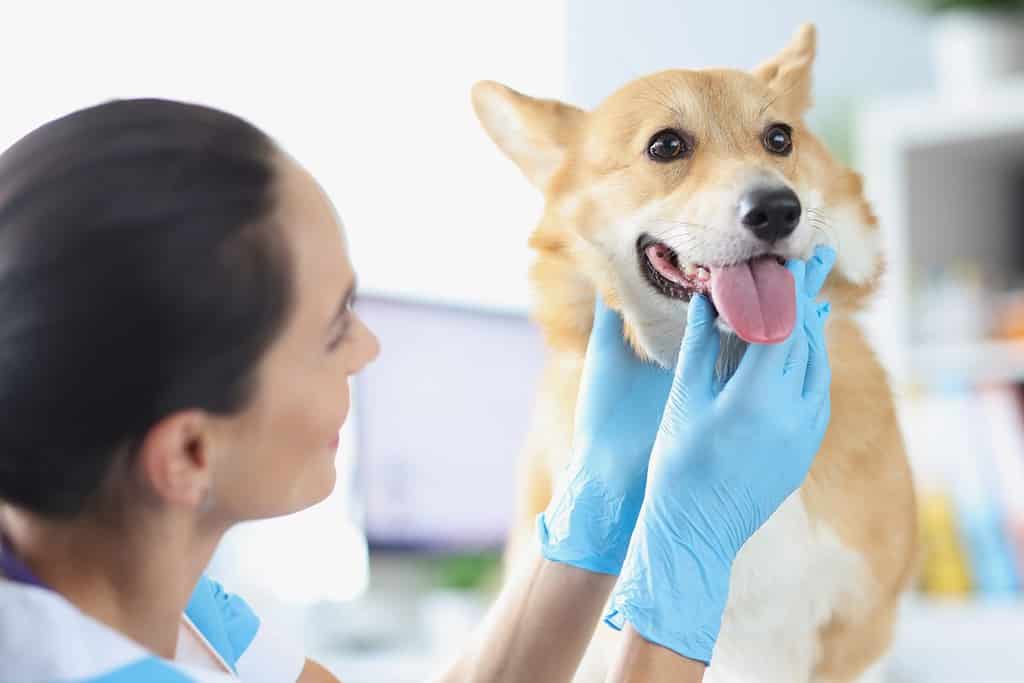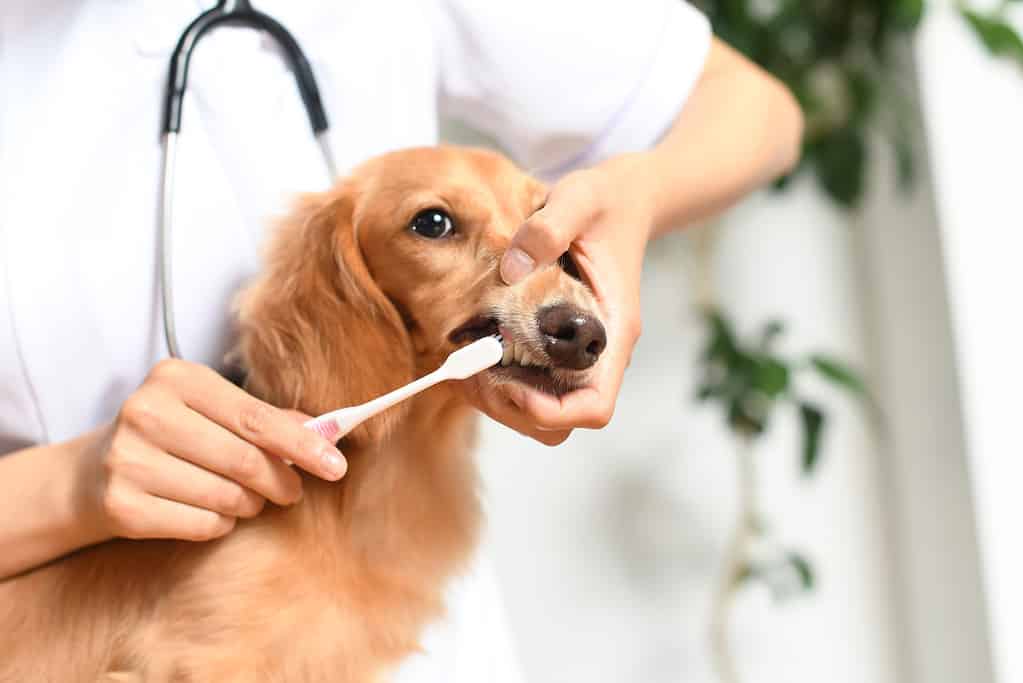Let’s face it, there are few things worse than realizing that a beloved family pet has gotten sick. While some illnesses are treatable with over-the-counter medicine, others must seek professional attention from a veterinarian. This can be a frightening time for many people, as our pets are just as much a part of the family as humans are. One condition that many dogs will develop over the course of their life is epulis. But what is it, and how can it be treated? Let’s discuss what epulis in dogs is, explore when surgery may be necessary, and investigate how much owners can expect to pay for this procedure.
What Is Epulis and When Is Surgery Necessary?

Although epulides are commonly diagnosed in dogs, a very small proportion of cats develop them.
©megaflopp/Shutterstock.com
Epulis refers to a tumor that grows within a dog’s mouth. These bumps often appear on the gums, and many are small. Because of this, owners may have some difficulty detecting one is present at first. In fact, many epulis growths are first identified during routine checkups. There are two primary types of epulis. Acanthomatous ameloblastoma grows somewhat aggressively whereas peripheral odontogenic fibroma is more slow-growing. While many of these masses are benign, some can be cancerous.
While any dog can develop epulides, dogs with short snouts such as pugs and boxers may be at higher risk of developing these tumors. The only way to know when surgical intervention is necessary is to contact your veterinarian and take your dog in for an evaluation. In some cases, the epulis will not impact the overall well-being of the dog’s life. In these instances, surgery may be put off for some time. However, dogs who are showing symptoms of discomfort such as bleeding, difficulty eating, or loss of appetite may need immediate intervention.
How Much Does Epulis Surgery Cost?
Unlike other surgeries dogs may undergo, the price to remove an epulis can fluctuate depending on the severity. Singular, small epulis removal costs will be lower than removing multiple large masses. However, owners can expect to pay somewhere around $500 to $1,500 for this procedure. While this might seem expensive, there are some ways to lessen the financial burden of this surgery. We’ll talk more about this later.
What Is Recovery Like After Undergoing Surgery for Epulis?

Taking your dog in for an annual check-up is paramount in preserving their health.
©titov dmitriy/Shutterstock.com
Thankfully, the recovery time for undergoing epulis removal surgery is a mere few days for most dogs. The recovery period is smooth sailing for many. Often, owners don’t have to do much more than administer pain medication as needed and ensure their animals are getting plenty of rest. As your dog recovers from surgery, they may have difficulty chewing and eating and their appetite may be lessened. Offer your dog soft, lickable foods if you notice they’re not receptive to their usual meals. Be sure to monitor their recovery closely and check in with your veterinarian if you notice they aren’t improving on your vet’s expected timeline.
Are There Alternatives to Surgery?
According to The University of Pennsylvania School of Veterinary Medicine, “Surgery and/or radiation therapy are the treatments of choice for these tumors. The prognosis is generally excellent with complete surgical removal.” However, depending on the size of the epulis, some veterinarians may not recommend surgery right away. In less severe cases, they may instead choose to monitor the growth over a period of time to see if removal is necessary. In the event that the tumor is impacting the quality of life of your dog, owners can have peace of mind knowing that these operations are routine for many veterinarians.
What Happens if You Can’t Afford Surgery?

Closely monitoring your dog’s oral health can be helpful in mitigating epulis symptoms.
©koumaru/iStock via Getty Images
We understand that not every pet owner in the world can afford a thousand-dollar medical emergency. Luckily, there are several options dog owners can take to soften the financial burden of this operation. Pet insurance is a wonderful safety net to have. However, not every dog owner will know this until it’s too late. If you don’t have a pet insurance plan for your dog yet, it’s smart to set a plan up long before you think surgery is on the horizon.
Some veterinary clinics offer payment plans for epulis removal surgery in which owners can pay for this procedure in installments over the course of a few months. In addition, owners may want to take their dogs to low-cost veterinary clinics or veterinary medical schools to shop for lower prices. Certain nonprofit organizations may also donate to families in need. While we understand owners might feel pressured to make a quick decision, it’s important to look at all your options before settling on one clinic.
Final Thoughts
Having a pet fall ill can be heartwrenching and stressful for the whole family. Thankfully, there are licensed medical professionals we can turn to during times of uncertainty to help preserve the health of our animals. While hearing your dog has epulis can be frightening for many, it’s important to remain calm as it is oftentimes curable. Many dogs go on to live long and happy lives after undergoing epulis removal surgery.
The photo featured at the top of this post is © Kateryna Kukota/iStock via Getty Images
Ready to discover the top 10 cutest dog breeds in the entire world?
How about the fastest dogs, the largest dogs and those that are -- quite frankly -- just the kindest dogs on the planet? Each day, AZ Animals sends out lists just like this to our thousands of email subscribers. And the best part? It's FREE. Join today by entering your email below.
Thank you for reading! Have some feedback for us? Contact the AZ Animals editorial team.






